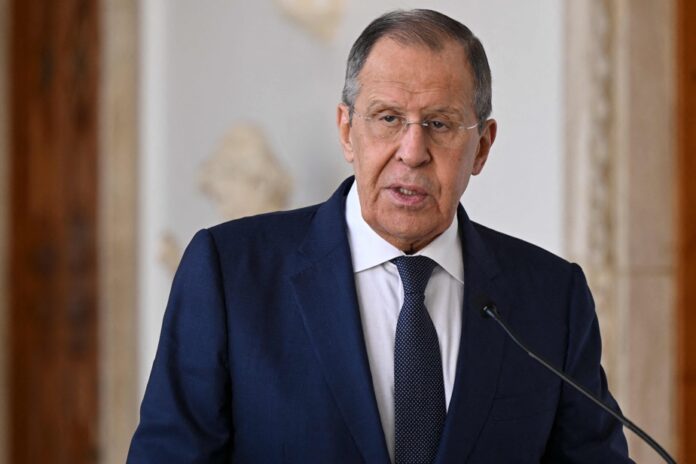(Caracas) Russian Foreign Minister Sergey Lavrov, on tour in Latin America, called on Tuesday for a “union” to counter Western “blackmail”.
“It is necessary to join forces to counter blackmail attempts and illegal unilateral pressures from the West,” Lavrov said during a press conference with his Venezuelan counterpart Yvan Gil, referring to “a multipolar world “.
After Brazil, Venezuela is the second leg of Mr. Lavrov’s tour of Latin America. He must also go to Cuba and Nicaragua.
“Venezuela, Cuba and Nicaragua are countries choosing their own path,” he said. These three socialist-inspired countries, criticized for their democratic deficiencies by human rights NGOs, have difficult relations with the United States and the European Union.
The Russian minister also addressed the war in Ukraine, assuring: “We will resolve the situation in Ukraine and other conflicts in the world through the principles of the United Nations Charter on the sovereign equity of States, on the principle of the indivisibility of security”.
“Our task is to ensure that the UN Charter is applied in full and that the right to self-determination is not taken away when it suits the West,” he added.
Russia has faced sanctions from the European Union and the United States since its invasion of Ukraine and violation of its internationally recognized borders.
The UN General Assembly demanded an “immediate” withdrawal of Russian troops at the end of February in a non-binding resolution passed by 141 of 193 member states (7 voted against) which reaffirms the “commitment” to the territorial integrity of Ukraine and also calling for a “just and lasting” peace.
Venezuela had already been a key Russian ally since the days of President Hugo Chavez (1999-2013) who backed Moscow during the war in Georgia in 2008.
President Nicolas Maduro has repeatedly expressed his support for Russia and Vladimir Putin before and after the start of the war in Ukraine.
Moscow, for its part, supported Caracas in the face of the battery of sanctions decided by the United States to try in vain to dislodge Mr. Maduro from power. Much of the international community, including the United States and the European Union, had not recognized his re-election in 2018, denounced by the opposition as “fraudulent”.
Mr. Lavrov had previously visited Venezuela in February 2020. He had condemned US sanctions against Venezuela, saying it was also “blackmail”.
At the bilateral level, Russia and Venezuela have announced that they have signed agreements concerning oil and mining exploitation.
“We are determined to continue to make progress, especially in the energy sector,” said Mr. Gil, who also touched on the tourism sector.
The paradise island of Margarita, somewhat deserted by Western tourists due to the Venezuelan crisis, attracts thousands of tourists, especially Russians, every year after the reactivation of an airline between the two countries which avoids the overflight of some airspace prohibited to Russians due to international sanctions.
Mr. Lavrov was due to meet with President Nicolas Maduro at the end of the day.
He will then travel to Cuba, faced with a serious economic crisis. Cuban President Miguel Diaz-Canel visited Russia at the end of November, where he announced that he had signed several agreements concerning the supply of oil to the island. However, fuel shortages persist.
A final step is expected in Managua and a meeting with President Daniel Ortega.


















